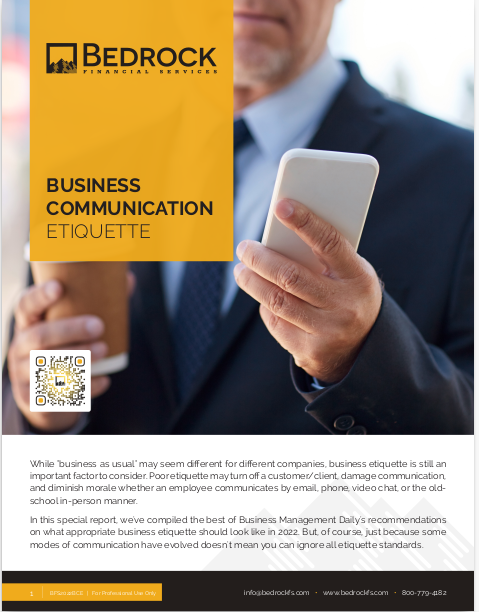Key Takeaways
-
When a client says “I was skeptical at first,” it signals a powerful shift from doubt to trust, making the review significantly more persuasive to prospects.
-
Using reviews that acknowledge initial skepticism builds authenticity, helps overcome objections, and drives stronger conversion for insurance professionals.
Why the Phrase Carries Weight
In 2025, attention spans are short and skepticism is high. That’s true for almost every industry, but especially for insurance, where public trust has always been a challenge. When someone begins a review with the words, “I was skeptical at first,” they’re admitting doubt—something many other prospects feel but rarely say out loud.
This type of testimonial works because it starts in the same emotional place your next client might be. It validates the hesitation, acknowledges the reality of consumer wariness, and then delivers a resolution—trust earned through performance.
Trust Isn’t Built on Hype
Potential clients today are not swayed by over-the-top claims or flawless 5-star ratings alone. In fact, overly polished testimonials may appear manufactured. But when someone admits to initial doubt, that review feels human. It reads like the honest story of someone who took a risk, got value, and changed their mind. That’s the emotional arc most people want to see before making a decision themselves.
What This Phrase Does for Your Business
1. Makes Your Reviews Relatable
Most prospects are hesitant. That’s the reality of selling in the insurance world. Whether they’re switching from another agent, buying for the first time, or unsure about what they need, doubt is the default. When they see someone else voice that same feeling—then talk about how it changed—it becomes easier for them to imagine saying yes.
2. Builds Credibility Through Transparency
You don’t need every review to sound like a paid advertisement. In fact, that’s counterproductive. A review that begins with skepticism builds credibility precisely because it includes the messy parts. People trust honesty more than perfection.
3. Bypasses the Need for Persuasion
You don’t have to say, “You should trust me.” The review already does that for you. More importantly, it does it from a third-party perspective. Prospects are more likely to believe their peers than they are to believe you. That’s why peer-reviewed testimonials hold so much weight in insurance sales.
4. Shifts the Conversation from Risk to Reward
The moment someone says, “I was skeptical at first,” they’re essentially saying, “This felt risky.” When they follow it with positive experiences, they show that the risk paid off. That sequence—doubt followed by reward—is exactly what drives decision-making in high-trust professions like insurance.
How to Get Clients to Say It (Without Prompting)
You can’t force authenticity. But you can create space for it.
Ask Questions That Invite Vulnerability
If you’re collecting feedback or requesting a testimonial, try questions like:
-
“What were your initial thoughts before working with me?”
-
“Were there any hesitations you had at first?”
-
“What helped you feel comfortable moving forward?”
These questions naturally surface the kind of response that includes skepticism—without you ever having to suggest those words.
Make It Safe to Be Honest
People don’t want to offend you, especially if the relationship was good. But if you explicitly say, “It’s okay if you had doubts initially—many people do,” you create permission. That permission makes the testimonial more real.
Don’t Overedit Their Words
When a client offers you feedback, resist the urge to polish it into marketing speak. Raw language like “I wasn’t sure this would work” or “I had my doubts” is exactly what makes a review land.
Let the review sound human. Let it breathe.
Where to Use Reviews That Include Skepticism
Strategic placement of this type of testimonial is just as important as collecting it. Here’s where it can have the most impact.
On Your Website’s FAQ or Objections Page
When you’re addressing common concerns—like cost, trust, or past bad experiences—drop in a review that includes the phrase. It softens the objection in a way no sales copy ever could.
In Email Campaigns for Cold Leads
If someone hasn’t responded to your email or signed up after a quote, send a short follow-up with a testimonial like this. You’re essentially saying, “Others were hesitant too, and here’s what happened.”
In Post-Appointment Recap Emails
Right after a prospect meeting, follow up with a review that starts with doubt and ends in praise. It reinforces your value and keeps the trust-building process alive.
On Social Media
In 2025, trust is currency—and authenticity wins the algorithm. Short video or text snippets of reviews with skepticism baked in perform better than generic praise. They get attention and create relatability instantly.
Inside Sales Presentations
Use reviews like this as soft testimonials when explaining your process or value. Especially effective when you’re explaining something technical or asking for a significant commitment.
What Makes a Skeptical Review Work Best
Not every “I was skeptical at first” review is equal. To truly resonate, it should follow a few key principles:
It Starts with Honest Doubt
“I didn’t think this would work” or “I had my reservations” sets the stage. This isn’t about negativity—it’s about transparency.
It Details the Turning Point
Was it your patience? A specific result? A clear explanation? The review should show what shifted their mindset.
It Ends with Confidence or Gratitude
The arc completes with trust. “I’m so glad I took the chance,” or “I couldn’t be happier now” seals the story. This structure forms an emotional journey that future clients can follow.
It Sounds Like a Real Person
Don’t try to clean it up. Keep in the casual phrases, the imperfect grammar, even the filler words if needed. That’s what makes it believable.
Don’t Let Doubt Stay Silent
Skepticism isn’t your enemy—it’s your edge. The clients who hesitated and then became loyal advocates tell the most valuable stories. If you’re only sharing the glowing 5-star reviews with no friction, you’re missing a major opportunity.
Let your testimonials show the full arc of the journey. Make room for the doubt. Because when people say, “I was skeptical at first,” what they’re really saying is, “This was worth it.” That’s exactly what your next client needs to hear.
The Clients You Win Over Matter More
At Bedrock Financial Services, we help professionals like you build systems that attract, convert, and retain the right clients. Whether you’re looking to improve your marketing, set more appointments, or get higher-quality testimonials, we’re here to help.
Sign up today and see how we can help you win the clients that matter—and turn skeptics into loyal fans.







